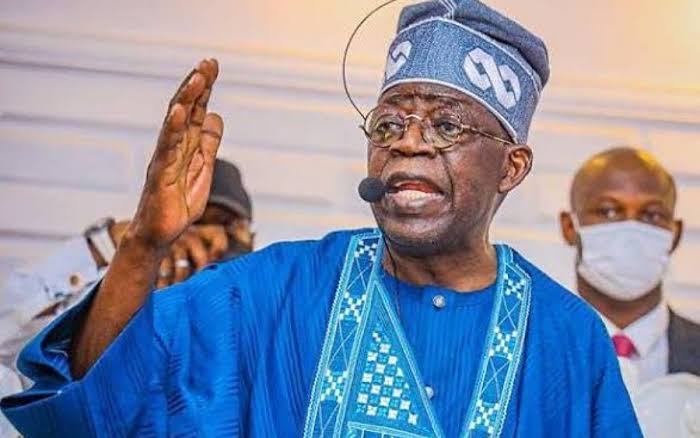Bayo Onanuga, the Special Adviser on Information and Strategy to President Bola Ahmed Tinubu, has shed light on the recent dismissals of several ministers, emphasizing the president’s respectful approach in communicating his decisions.
In a significant departure from past practices where dismissals were often abrupt and made public via radio or television, Onanuga detailed how President Tinubu personally met with the dismissed ministers to convey his decisions in a considerate manner.
During an appearance on Channels Television’s “Sunday Politics,” Onanuga elaborated on the rationale behind the decision to replace five ministers and reassign ten others. He stressed that this move was not made lightly but was the result of a careful and deliberate evaluation process. This evaluation was structured and methodical, aimed at ensuring that the decisions were grounded in solid performance assessments rather than impulsive choices.
The recent changes were officially announced following a Federal Executive Council meeting last Wednesday. The ministers who were let go included Uju-Ken Ohanenye, Minister of Women Affairs; Lola Ade-John, Minister of Tourism; Prof. Tahir Mamman (SAN), Minister of Education; Abdullahi Muhammad Gwarzo, Minister of State for Housing and Urban Development; and Dr. Jamila Bio Ibrahim, Minister of Youth Development. The president’s decision was framed within the context of ongoing efforts to optimize government performance and accountability.
Onanuga highlighted that the impetus for these changes stemmed from a detailed performance review led by Hadiza Usman, who serves as the Special Adviser on Policy and Coordination. He noted that Usman’s team utilized modern technology and actively sought citizen feedback to comprehensively assess the performance of the ministers. This approach represented a significant shift in how ministerial effectiveness is evaluated, moving beyond traditional methods to incorporate direct input from the public.
The use of technology and citizen feedback is a key element in this evaluation process. Onanuga pointed out that data was collected through various means, focusing on public opinion and ratings given by Nigerians regarding their ministers’ performances.
This innovative method aimed to ensure that the assessments were not only fair but also reflective of the citizens’ experiences and perceptions regarding the government’s effectiveness.
Onanuga explained, “The president did not change his ministers whimsically. The change underwent a rigorous procedure. Since our retreat in October of last year, the president made it clear to the ministers that they would be subject to evaluation. Hadiza Usman was placed in charge of this process.” This statement underscores the president’s commitment to accountability and performance measurement in governance, suggesting that he intends to foster a culture of responsibility within his administration.
According to Onanuga, Usman’s team’s methodical approach included soliciting public feedback on ministerial performance, allowing citizens to provide scores and comments based on their experiences. This interactive engagement with the populace not only empowered citizens to voice their opinions but also ensured that the decision-making process was anchored in real-world evaluations of ministerial effectiveness.
As the discussions around these dismissals unfolded, Onanuga addressed the terminology used to describe the situation. While many observers might have referred to the ministers as being “sacked,” he clarified that President Tinubu preferred the term “discharged.” This choice of language reflects a more respectful approach to leadership and change, highlighting the president’s intent to maintain dignity in the process of restructuring his cabinet.
During the private meetings held with the dismissed ministers, Onanuga recounted that the president approached the situation with grace and politeness. He thanked each minister for their contributions to the government and wished them well in their future endeavors. “When he communicated his decision on Wednesday, he was very polite and expressed gratitude for their services to the country,” Onanuga noted. This manner of communication contrasts sharply with the more public and often harsh methods employed in previous administrations, where dismissals were frequently made through impersonal announcements that lacked the personal touch.
The context of these changes reflects a broader strategic vision that President Tinubu aims to implement during his tenure. By prioritizing performance evaluations based on citizen feedback, Tinubu is not only fostering a culture of accountability within his administration but also signaling to the public that their voices matter in governance. This approach is likely to enhance public trust in government institutions, as citizens see that their opinions can directly influence ministerial appointments and government performance.
Moreover, Onanuga’s insights into the evaluation process and the subsequent changes in the cabinet suggest that the Tinubu administration is serious about reforming how governmental performance is assessed and managed. The emphasis on technology and public feedback indicates a progressive shift towards transparency and responsiveness in governance, which could serve as a model for future administrations.
In conclusion, the recent ministerial changes under President Tinubu, as articulated by Bayo Onanuga, highlight a significant evolution in governmental communication and accountability practices. By personally informing dismissed ministers of his decisions and emphasizing a respectful approach, the president sets a new tone for leadership.
The focus on performance assessments driven by citizen feedback showcases a commitment to improving governance and ensuring that public officials are held accountable for their roles. As these changes unfold, they may pave the way for a more engaged and responsive government, ultimately benefiting the Nigerian populace as a whole.

